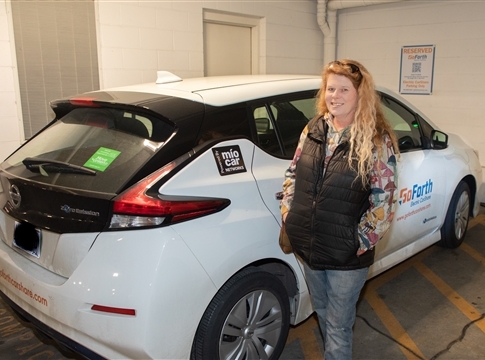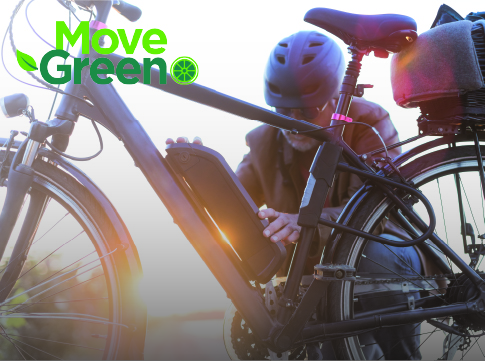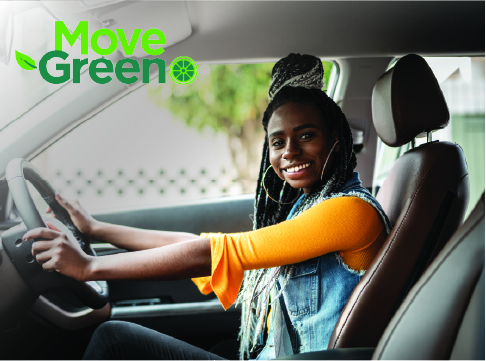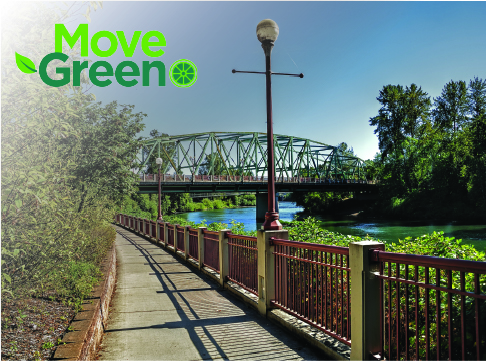Related News
Related News
-
EWEB Board of Commissioners Approves Employment Agreement with John Hairston as Next General Manager
“EWEB is a public treasure,” Hairston said. “I’m eager to listen to staff, learn from the community, and build on the strong foundation already in place."
Find Out More -
EWEB Board of Commissioners selects BPA administrator for general manager role
In a unanimous vote, EWEB’s Board voted to move forward with negotiating an employment offer to BPA’s John Hairston.
Find Out More -
EWEB and Lane Electric Cooperative sign agreement to transfer EWEB's McKenzie Valley customers
EWEB and Lane Electric Cooperative have reached an important milestone in transitioning electric service from EWEB to Lane Electric in the McKenzie Valley. The two utilities have officially signed agreements for EWEB to sell its electric service territory in the McKenzie Valley to Lane Electric.
Find Out More -
EWEB Board adopts 2026 organizational goals to guide utility priorities
At the January public meeting, EWEB adopted a new set of organizational goals for 2026, providing direction for our work priorities in the year ahead.
Find Out More -
Cold temperatures this week drive highest electricity demand of the winter so far
Frosty conditions in Eugene this week have driven electricity demand to the highest levels so far this winter as heaters strain to keep homes and businesses warm.
Find Out More -
Our Favorite Photos of 2025
For a final look-back at 2025, we’d like to share some of our favorite photos that illustrate our work day-in and day-out. We celebrate amazing teamwork, vital partnerships, and sing the praises of our individual champions and their quiet dedication to serving our community!
Find Out More -
EWEB and the UO launch energy generation pilot project
Pilot project gives EWEB the option to run UO’s on-site natural gas generator this winter, gathering valuable insight into the generator’s efficiency and reliability.
Find Out More -
Sustainability Snapshot - Celebrating Energy Efficiency Projects in the Community
Sustainability Snapshops highlight impactful projects completed by EWEB's Customer Solutions department, as a way to celebrate the meaningful work happening behind the scenes.
Find Out More -
McKenzie Valley electric service territory realignment study reaches key milestone
EWEB Commissioners approved a resolution authorizing the General Manager to negotiate and execute agreements with Lane Electric Cooperative regarding a potential realignment of electric service territory in the McKenzie Valley at the Board’s December meeting.
Find Out More -
EWEB Sets 2026 Budget and Rates, Advances Evaluation of McKenzie Valley Service Territory Realignment
Taken together, the 2026 budget and rate adjustments and the territory-realignment evaluation reflect EWEB’s dedication to responsible financial stewardship, modern, resilient utility infrastructure, and thoughtful planning for the future.
Find Out More -
EWEB secures $2.5 billion of reliable, affordable, carbon-free energy for customers
The new contract with EWEB’s largest energy supplier, the Bonneville Power Administration, forms the foundation of a diverse energy portfolio.
Find Out More -
Women in STEM: Meet the Hydro Project Engineer Building Habitat for Salmon
EWEB Engineer Associate Val Chang found her way to the McKenzie River from Los Angeles, inspired by heritage trips to the waters of Taiwan and key mentors along the way.
Find Out More -
Public Power Week Poster Contest Winners 2025
The results are in! View the winning posters from EWEB's 2025 Public Power Week Poster Contest.
Find Out More -
EWEB Hometown Heroes compete internationally
Out of 290 teams from 14 different countries, EWEB's Lineman Rodeo team places in the top third of competitors.
Find Out More -
EWEB's Halloween Truck-or-Treat is a huge success
Community members are accustomed to spotting EWEB trucks around Eugene streets and neighborhoods. But last week, those familiar vehicles looked a little different. At EWEB's second annual Truck-or-Treat Customer and Crew Appreciation Event, our fleet transformed into a festive Halloween spectacle.
Find Out More - Show More
EWEB programs make electric transportation accessible to all
June 01, 2023 • Ashley Cissna, EWEB Communications

Another version of this article was originally published in NWPPA’s January 2023 Bulletin.
Drive down any urban street in the Northwest, and you’ll see an electric vehicle in the next lane. Ride down any commuter bike path, and you’ll see an electric bike zooming along.
Electric mobility is everywhere. But it’s not accessible to everyone.
But EWEB is making a concerted effort to bridge the gap between availability and accessibility of electric mobility through EV car shares, community grants, and rebates. New programs launched last year have proven so successful that EWEB is expanding them.
“It’s one thing to encourage adoption of electric mobility. It’s another thing to make electric mobility accessible,” said EWEB Business Line Manager Juan Serpa Muñoz, who oversees the development of EWEB’s electric mobility programs. “Availability is not accessibility. We want our programs to be accessible, not just available to all members of the community.”
Making electric mobility equitable
A 2021 EWEB study found that EVs deliver greater financial and environmental benefits than other electrification efforts, such as electrifying space and water heating. When customers own an EV, they save money on gas and maintenance. But most EVs currently on the market cost thousands more up front than equivalent gas-powered cars. An Oregon Department of Energy analysis found that less than one-third of EVs belong to Oregonians who earn less than the median household income, while most EVs belong to Oregonians earning twice the median household income or more.
It’s a classic Catch-22: the people who can benefit most from the lower operating costs of an EV can’t afford to purchase one.
So, while it is exciting to see more electric mobility options on the road, it does pose the question: Is the distribution of electric vehicles equitable?
“Social equity must be intentional, at the forefront, not an afterthought of program design,” Serpa Muñoz said. “We try to consider accessibility in all the work we do, with the knowledge that not all programs can be accessible to everyone.”
Serpa Muñoz described how a prosperous business owner may have the financial ability to purchase an EV but could hesitate because of a lack of information. On the other hand, a cashier at a grocery store may not have the money to purchase even the most inexpensive EV. The same rebates and educational resources may be available to both people, but the cashier can’t access an EV because of their income. Programs cannot be standard for both customers; each requires different accessibility options.
Car sharing brings EVs to more people
EWEB has encouraged electric mobility for years through a rebate for EV chargers. But in April 2022, EWEB introduced several new programs aimed at helping remove the financial barrier to electric mobility. These programs are part of EWEB’s suite of carbon-conscious programs that fall under the Green Options umbrella.
One program is an EV-sharing program with Forth Mobility, called GoForth CarShare. EWEB and Forth have partnered with three local agencies—Lane Transit District, St. Vincent de Paul of Lane County, and the City of Eugene—to bring three EVs to under-served populations.
These EVs are located in areas with low EV adoption, and they are available to rent for as little as $4 an hour—making them accessible to more people. The vehicle provided by St. Vincent de Paul of Lane County, a local service provider for those experiencing financial hardship within the Eugene area, is located at a newly constructed affordable housing project for low-income families.
 “Four major impediments to viability for low-income families are childcare, affordable housing, food insecurity, and transportation,” said Terry McDonald, executive director of St. Vincent de Paul of Lane County. “This partnership gave us the opportunity to demonstrate how this type of vehicle transportation through a sharing program could be really advantageous to low-income families and populations. Done in a sustainable manner, it’s even better.”
“Four major impediments to viability for low-income families are childcare, affordable housing, food insecurity, and transportation,” said Terry McDonald, executive director of St. Vincent de Paul of Lane County. “This partnership gave us the opportunity to demonstrate how this type of vehicle transportation through a sharing program could be really advantageous to low-income families and populations. Done in a sustainable manner, it’s even better.”
The GoForth CarShare EVs in Eugene are part of a larger network of car-sharing locations Forth is piloting across Oregon and Washington, with eleven cars currently located in the region. Three of the EVs are in Eugene.
The Eugene locations are exceedingly popular. According to data tracked by Forth, the three cars in Eugene have logged some of the most miles statewide. Forth also found that cars located at affordable housing projects are generally used the most, and one of the vehicles in Eugene is located at such a project.
Several residents at Iris Place have expressed appreciation for the car-sharing program, “I began using the car when my personal vehicle was in an accident,” says Shawna, a resident of Iris Place. “Now I use it regularly as I save up to purchase a new vehicle. It has been super easy and convenient to use. I use it for errands around town and even took it to the coast for a day trip!”
A second vehicle is located at a popular Lane Transit District bus station, Santa Clara Station. This bus station provides members of the community with multiple services, including park and ride, secure bike storage, and multiple bus lines. These amenities provide users of the car share program multiple methods to access the vehicle. The location also has three EV charging stations, one of which is dedicated to the car-sharing vehicle.
The newest location is at the City of Eugene’s Broadway parking garage. “This is a great location for a service like this,” says Logan Telles, a Transportation Planner for the City. “The GoForth CarShare program is a great, convenient way for people living or working in the area to test an EV and see how electric mobility options would fit into their daily lives.”
Grants to expand electric mobility access
EWEB is also bridging the gap in electric mobility equity with new Electric Mobility Community Grants. These grants are awarded to nonprofits, academic institutions, or public organizations that serve the Eugene area and are seeking ways to improve electric mobility.
“These agencies are experts at what they do and the populations they serve, and we see an opportunity to increase equitable access to electric mobility by supporting them through our grant program,” Serpa Muñoz said.
The new electric mobility community grants were introduced in April 2022 and application evaluation began in August. The committee reviewing the grants scored each proposal on several criteria—project feasibility; use of funds; innovation and analysis; social equity; and the educational, environmental, and community benefits. Based on the scores, EWEB awarded five grants of approximately $25,000 each to local organizations.
 The winning proposals covered a broad range of projects, including two e-bike-sharing programs, two EV charging stations and a fleet of electric tricycles to be used in the administration of another local bike-share program. You can read more about the 2022 grant recipients here.
The winning proposals covered a broad range of projects, including two e-bike-sharing programs, two EV charging stations and a fleet of electric tricycles to be used in the administration of another local bike-share program. You can read more about the 2022 grant recipients here.
EWEB announced that we are accepting proposals for the 2023 grants on Earth Day. EWEB hopes the grant program will encourage more organizations to include electric mobility in future projects and thus increase the accessibility of electric mobility to underserved communities. If you are a non-profit, community organization or academic institution, we encourage you to check out the program and apply!
Alternative types of electric mobility
Besides carsharing and electric mobility grants, EWEB also wants to put electric mobility options directly into the hands of customers to incorporate into their daily routine. Rebates for EV chargers have been part of EWEB’s electric mobility efforts for years, but recently the utility added rebates for e-bikes to the mix. In 2022, EWEB launched a $300 rebate for customers who buy e-bikes. The program was so successful that, within four months, EWEB increased the number of allowed rebates per household from one to two. A couple months later, EWEB also expanded the rebate to cover professionally converted e-bikes.
The growth in rebate applications has been explosive. The first month after EWEB announced the rebate, 47 rebate applications were submitted. In October, the number skyrocketed to 231 applications—the largest number of applications to that point. As of March 2023, EWEB has awarded 1,132 rebates to new e-bike owners.
“E-bikes are far less expensive than EVs, so that can open the door to greater levels of access to electric mobility for people with lower incomes,” Serpa Muñoz said. When looking at the rebate applications submitted for single e-bike purchases, it is evident that the majority of e-bike purchases are for moderately priced e-bikes. In 2023 86% of e-bike rebates were for bikes under $3,000, with the average price being $1,800.
EWEB is hopeful that, over time, the cost of e-bikes and EVs will continue to drop adoption of e-bikes will continue throughout the city and electric mobility will continue to become more equitable.
One of the most important ways EWEB serves low-income customers is by keeping rates low. Since the funding for EWEB’s electric mobility projects is provided by credits from the Oregon Clean Fuels Program, these programs don’t impact customer bills.
With the Clean Fuels Program, each EV within the utility’s service territory earns credits, which EWEB can then sell. EWEB uses these funds to encourage electric mobility in populations that may not otherwise have access to this new technology.
“We are projecting that our credits will continue to increase over the next several years. We have no concerns that funding for these programs will become an issue,” Serpa Muñoz said. “And that means we’ll be able to keep helping make electric mobility both available and accessible to our customers.”
Related Programs
Our e-bike incentive increases access to more affordable, zero emission electric bikes and supports our community’s commitment to transportation electrification and active transportation options.
You don't have to own a car to drive electric. Our partnership with Forth Mobility brings three electric car sharing stations to Eugene, including a dedicated station for residents of St. Vincent de Paul's Iris Place.
We're pleased to offer grant funding to help increase awareness, access, infrastructure, and adoption of electric mobility in EWEB service territory.





